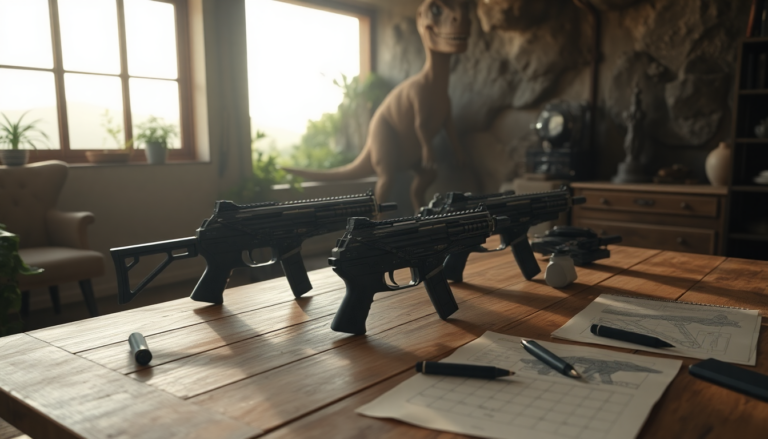Argomenti trattati
Gunman Chronicles, a once-ambitious first-person shooter developed by Valve and Rewolf Software, remains an intriguing chapter in gaming history. Released back in 2000, this game developed a cult following thanks to its standout features like programmable weapons and a dinosaur-themed aesthetic. But why has it faded from modern platforms? This raises questions about its legacy and the story behind its creation. Let’s take a closer look at the game’s backstory, the creative minds behind it, and the hurdles they faced in the fiercely competitive world of video game development.
The Origins of Gunman Chronicles
The journey of Gunman Chronicles kicked off when a group of young modders aimed to craft a game that would truly stand out in the rising tide of first-person shooters. Originally, Gunman Chronicles was conceived as a mod for Doom, showcasing the creativity and determination of its developers. Herbert Flower, the game’s director, began his career by crafting textures and models using physical materials—an approach that not only set the tone for the project but also highlighted his hands-on commitment.
As their vision took shape, Flower and his team transitioned from modding to developing a standalone title. The mod quickly garnered attention for its exceptional graphics and engaging gameplay mechanics, prompting the team to seek support from Valve. This partnership was a game changer, as Valve provided the essential resources and guidance to help bring Gunman Chronicles to life.
The Challenges of Development
Yet, the road to development wasn’t smooth sailing. Despite the initial excitement, the team faced numerous challenges. Financial difficulties forced Flower to cut back on his work hours and even move back in with his parents during the project. As deadlines approached, the pressure mounted, and the team struggled to balance their creative ambitions with the demanding nature of the project. Flower recalls the intense schedule imposed by Valve, requiring the team to push through long hours under tight deadlines. Can you imagine the strain?
In the midst of this, a diverse group of modders from around the globe came together, each bringing unique skills to the table. However, the fast pace of technological advancement in the gaming industry also posed its own set of challenges. Flower constantly found himself adapting the game’s engine to keep up with emerging trends—no small feat in a rapidly evolving landscape.
The Aftermath and Legacy
Gunman Chronicles was ultimately released on November 21, 2000, but its reception was mixed. Critics pointed out similarities to Half-Life, which understandably frustrated the development team. Despite the hurdles and controversies, Gunman Chronicles left an indelible mark on the gaming community. Flower’s experience throughout the trials of game development stands as a testament to the dedication and creativity of the modding community.
Fast forward to today, and the game remains unavailable on platforms like Steam, sparking speculation about potential rights issues between Valve and various publishers. Flower’s subsequent ventures in the gaming industry reflect his resilience and passion for game development, even as he has shifted his focus toward a new career in photogrammetry. What’s next for him? Only time will tell, but his journey continues to inspire.

